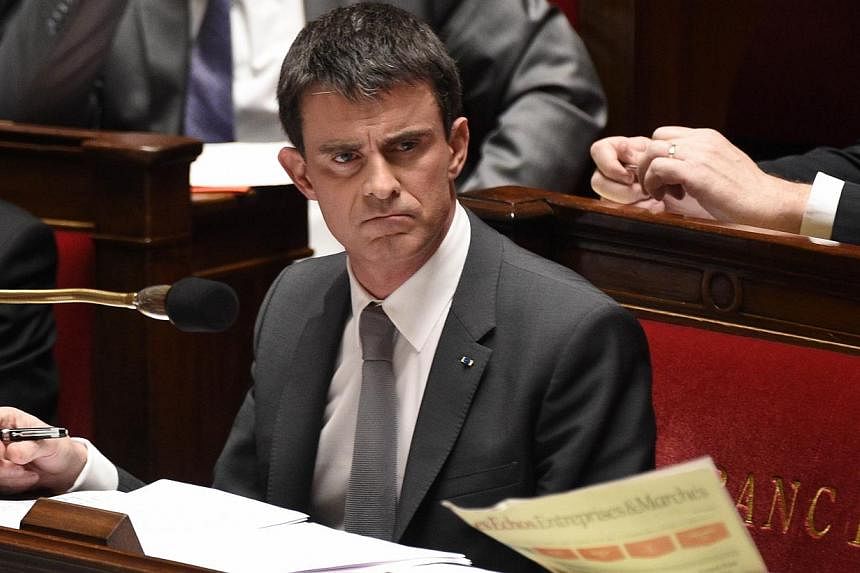PARIS (AFP) - France's Socialist government won a confidence vote tied to its economic reform package on Thursday that could in theory have caused its collapse amid a damaging backbench rebellion.
A total of 234 mainly opposition deputies voted for the motion of no-confidence, far short of the number required to bring down the government.
The emergency vote was sparked when Prime Minister Manuel Valls on Tuesday employed a rarely-used constitutional device to force through a key package of reforms without a parliamentary vote.
He made this decision due to concerns the rebellion from within his own Socialist party would block the reforms, which now automatically go through after the failure of the no-confidence motion.
The reforms extend Sunday shopping and open up key parts of the French economy to competition.
The government says they are vital to "unblock" the euro zone's second-biggest economy, which is suffering from chronically high unemployment and sluggish growth.
They are also seen as crucial in Brussels, where the EU has urged France to reform in order to bring down its ballooning budget deficit, which is far above European limits.
"The French people expect us to act. For us to remove blockages. The main blockage is our too-weak growth. It prevents us from creating jobs, from reducing our mass unemployment that is hurting us so much," Valls told MPs.
Despite their anger over the reforms, the left-wing rump of the Socialist Party said they would not go so far as bringing down the government by backing the no-confidence motion.
"No one has for a moment considered voting for this motion of no confidence," said Christian Paul, one of the chief Socialist rebels.
But the reforms have split the party. On Wednesday, Valls condemned the "conservatism, irresponsibility and childishness" of those who oppose the Bill.
The reforms will give the struggling French economy "a fresh lease of life," Valls said.
'REPEATED LIES'
The opposition UMP party has seized on the government's need to force the Bill through parliament - the first time the constitutional device has been used since 2006 - slamming Valls as weak and unable to carry his majority.
The head of the conservative UMP, former president Nicolas Sarkozy, said it was "the consequence of the repeated lies" of President Francois Hollande.
The reforms are the brainchild of the youthful and energetic banker-turned-economy minister Emmanuel Macron, and have proved divisive from the beginning.
One of the key planks of the reform allows shops in certain tourist zones - notably the Champs Elysees in Paris - to open every Sunday of the year.
This was a bid to ensure Paris retains its status as the world's most visited city but it irked the capital's mayor, who has opposed the measures.
Another element of the reforms is to open up to competition previously closed sectors of the economy such as the legal profession.
Notarial lawyers, who set a fixed fee for their services regardless of the size of the job, will be able to charge clients more or less for certain projects, opening up the sector to competition.
But this reform also ran into significant opposition and prompted the unusual sight of these white-collar workers downing tools and hitting the streets in protest.
The package of reforms will now be considered in France's upper house of parliament, the Senate, from April.

